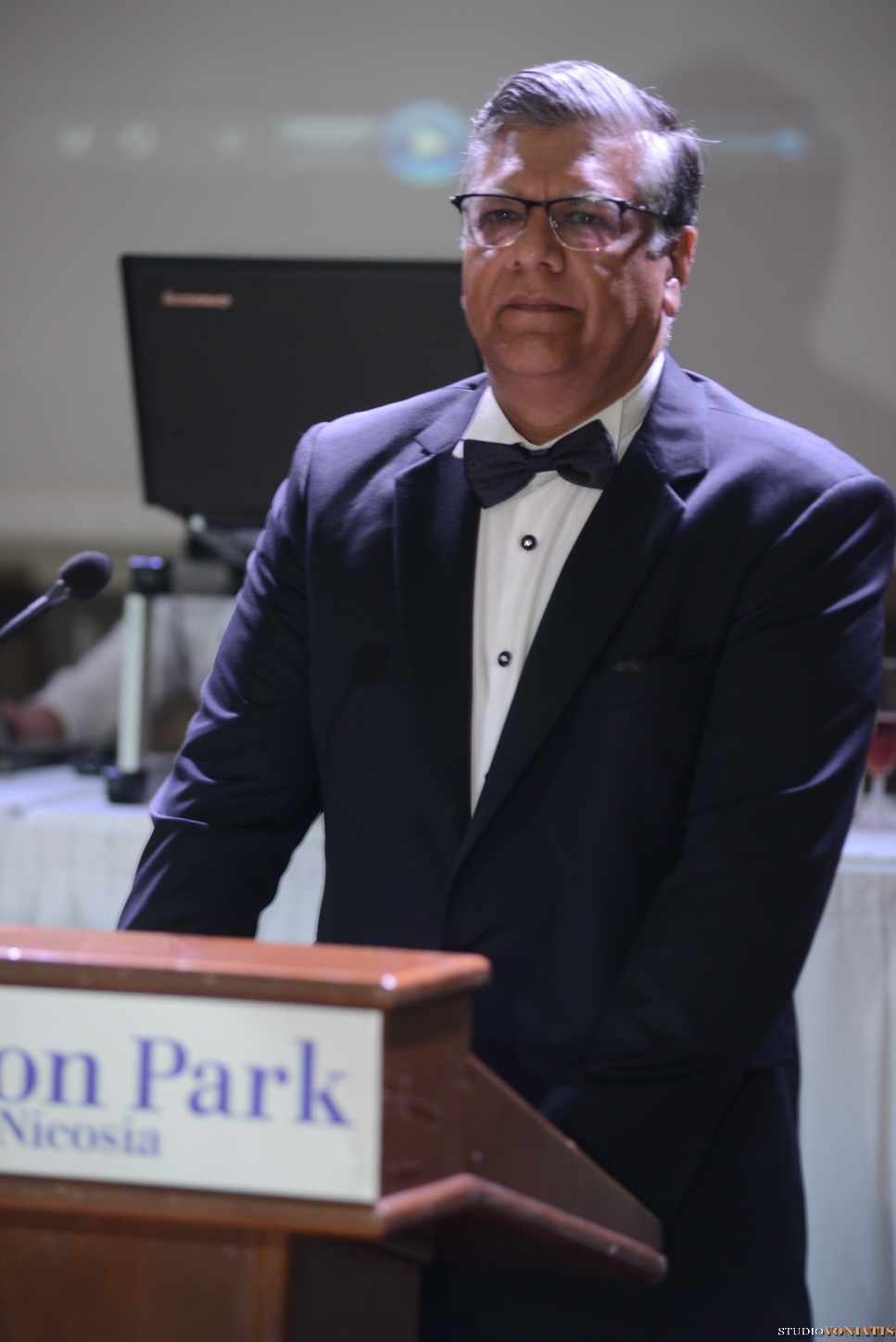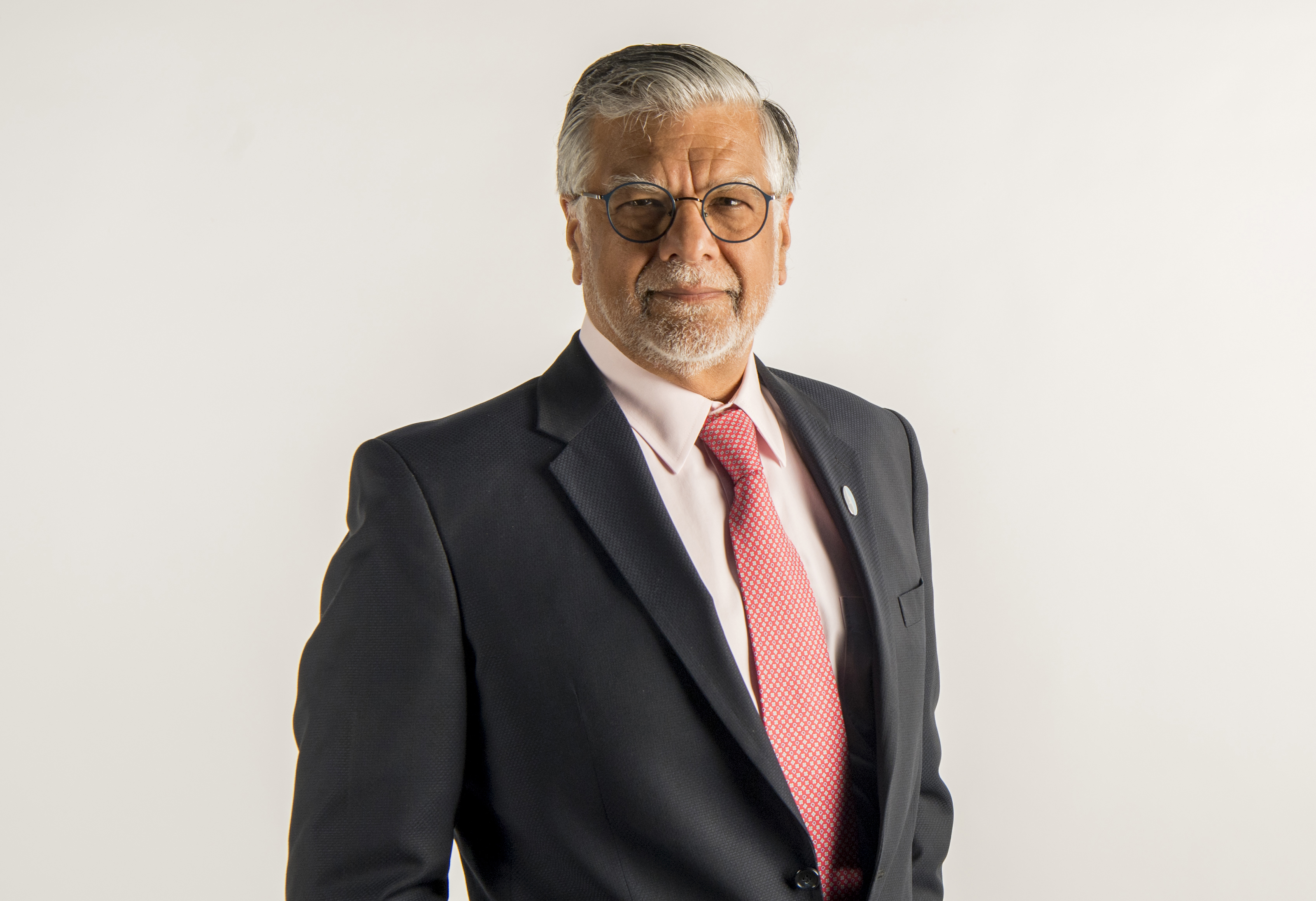An experienced shipowner shares how a journey through India, Hong Kong and Cyprus shaped his career, and why stronger Cyprus–India ties and greener shipping could define the next chapter
Sunil Kapoor still recalls his flight back from New York to Cyprus in April. By coincidence, he was seated next to Invest Cyprus CEO, Marios Tannousis.
“The man on a mission,” he called him, describing how Tannousis spoke passionately about Cyprus President Nikos Christodoulides’ push to open a direct dialogue with India and to bring Prime Minister Narendra Modi to the island.
At the time, it felt ambitious, but only months later, it became reality.
When Modi arrived in Cyprus, it was more than ceremony.
For the first time in decades, an Indian prime minister had stepped on Cypriot soil.
“What stood out to me most was Modi’s line, it is not just about the ease of doing business, it is about the trust of doing business,” Kapoor said, adding that Cyprus was ready to look east and India ready to meet it halfway.
Kapoor was part of the roundtable during the visit, describing it as not just about business but about “witnessing history and, in my own small way, contributing to it.”
Cyprus and India: building bridges
When Kapoor first arrived in Cyprus from Hong Kong in 2007, he did not know a soul.
Today, he calls the island home and believes strongly in the potential of Cyprus–India shipping ties.
“Maritime cooperation is already underway with naval visits and joint drills,” he said, pointing also to the India–Middle East–Europe Corridor, which he believes offers Cyprus the chance to be the bridge between Asia and Europe.
“I also see enormous potential in technology partnerships, digital solutions and even a Cyprus–India shipping fund to channel Indian capital into European fleets.”
Challenges ahead
According to Kapoor, Cyprus offers world-class maritime services, insurance, legal, accounting, ship management, bunkering and technical support, all around the clock.
More companies, Kapoor noted, are expanding on the island for its qualified workforce, lifestyle and location.
Yet obstacles remain. The Turkish embargo is the most visible.
“Our first Cyprus-flagged bulk carrier cannot call at Turkish ports,” he said, stressing that supporting Cyprus was a deliberate choice for him, but not every owner will make the same decision if it means lower earnings.
Beyond politics, finance is another hurdle. Kapoor explained that local ship finance is minimal, foreign banks are absent and local banks are uncompetitive.
Even remittances to crew and suppliers, he said, cost more than in Greece or Singapore, warning that unless Cyprus builds its own financing ecosystem, owners will keep raising capital elsewhere.
Reputation is also key. “Cyprus is sometimes linked to sanction loopholes or the so-called dark fleet,” he said, underlining that to attract quality owners and investors, credibility and transparency must be at the core.
And like elsewhere, there are decarbonisation pressures, new regulations and a shortage of talent.
“True progress for Cyprus rests on two pillars: strong relationships with our neighbours and lasting peace,” Kapoor said, adding that the island also has a humanitarian role to play by using its ports to deliver food, medicines and reconstruction materials to nearby regions in conflict.

On sustainability
Against this backdrop, sustainability remains a defining challenge. Progress has been made, but not nearly enough.
Kapoor mentioned that the Shipping Strategy, projects like BlueBARGE for renewable energy, and ports preparing for cold ironing are steps forward.
“From January 2024, Cyprus-flagged and EU/EEA shipowners adopting greener measures can receive up to a 30 per cent reduction in tonnage tax, a welcome incentive,” Kapoor said, noting that Cyprus ranking last in EU sustainability indicators should be a wake-up call.
He added that even small actions such as discouraging single-use plastics or choosing eco-friendly packing matter because, across fleets, “they add up.”
For him, sustainability is not only about saving the planet.
“It is about competitiveness,” he stressed, adding that climate change is already disrupting ports and supply chains, and that missing the targets would harm both the environment and the bottom line.
Regulations and risks
Linked to this is the wider picture of global instability. Kapoor described some days in shipping as “sailing through fog”, with conflicts, sanctions and tariffs creating uncertainty everywhere.
Wars in Ukraine and the Middle East and attacks in the Red Sea weigh heavily.
“As an owner, I cannot justify sending my crew through dangerous waters. That’s not bravery; that’s recklessness,” he said, insisting that safety must always come first.
At the same time, decarbonisation and digitalisation remain on the agenda, though today survival and safety often take precedence.
He noted that the EU is advancing ETS and FuelEU Maritime, the IMO is tightening emissions rules, and the US is focusing on sanctions and sea-lane security.
“Shipowners face double pressure: carbon compliance costs on one side and geopolitical instability on the other,” Kapoor said, adding that carbon will simply become another cost of doing business.
Cyprus, he argued, must stay aligned with EU rules but remain flexible for global clients, since “that balance will define competitiveness.”
Digitalisation: the thread that runs through
Nevertheless, Kapoor believes digitalisation runs like a thread through every other challenge.
Of the three Ds shaping shipping, decarbonisation, digitalisation, and deglobalisation, it is digitalisation that connects them all. “It cuts waste, boosts efficiency and creates transparency,” he said.
He pointed to Cyprus’ shift to online registrations, e-certificates and faster approvals. These, he explained, may seem technical, but they show Cyprus is serious about being a modern hub.
“I remind younger colleagues: AI and digital tools aren’t here to take jobs but to make us better at them. AI will not replace people, but people who embrace AI will replace those who don’t.”
Looking ahead, Kapoor pictured Captain Maria commanding a hydrogen-powered cargo ship under the Cyprus flag.
“With a tap on her laptop, arrival papers are filed and approved instantly,” he said, imagining a future where the sea is clearer, the air cleaner and shipping smarter, with paperwork and the dark smoke of heavy fuel gone for good.
Where growth lies
For Kapoor, the question of growth is equally important. He sees Cyprus well placed to capitalise on regional and global opportunities.
“Cyprus can be a logistics hub for humanitarian and reconstruction cargoes to Gaza, Lebanon and Syria,” he said.
He added that the India–Europe Corridor offers enormous promise, with Cyprus positioned as the maritime node linking India directly to Europe.
Green shipping is already underway, with owners testing ammonia, methanol and hydrogen. “If Cyprus builds infrastructure early, it can lead the Mediterranean,” Kapoor said, stressing that branding will also be essential.
“Greece, Singapore and Norway market themselves relentlessly. Cyprus has the fundamentals but must tell its story louder: clean up the image, show compliance and walk the talk. Only then can we attract the right investments and talent.”
Education: the foundation
Education is another cornerstone of Cyprus’ maritime future. “We should build a full maritime university, a true centre of excellence attracting students from Europe, India and beyond,” Kapoor said.
He noted that the green shift could create four million jobs by 2050, nearly double today’s seafarer numbers. These jobs, he added, will span renewable energy, e-fuels, port logistics and digital operations.
“Imagine Cyprus training this workforce and exporting talent worldwide.”
For Kapoor, education must be modern: AI-driven simulators, alternative-fuel labs and cyber-risk training. “Partnerships with India, Greece and European institutions could strengthen the ecosystem. And we need to inspire young people to see shipping as a rewarding career onshore and at sea”, Kapoor added.
“A clean, competitive fleet will always need a skilled workforce, education is the foundation of our maritime future,” he said.
Lessons from three worlds
Kapoor’s own life reflects this theme of education and adaptation.
He grew up in India, sailed for 12 years, lived in Hong Kong for 11, and then settled in Cyprus in 2007.
Each place, he said, shaped him differently.
“India taught resilience, life doesn’t hand you anything easily, so you find a way forward. Hong Kong taught professionalism, a city that never sleeps, where discipline and delivery matter. Cyprus taught patience, building relationships slowly and adapting to a new rhythm of life.”
He still smiles while remembering his first shipping party in Cyprus, when he and his wife were the only Indians in the room.
“I wondered if we would ever belong,” Kapoor said, but today the island has embraced them.
“If I sum it up: India helped me endure, Hong Kong helped me excel, and Cyprus helped me belong and grow.”
On a lighter note, he added, all three places drive on the same side of the road.
Advice to the next generation
All of these lessons feed into his advice for the next generation. “Shipping is a noble profession, now more exciting than ever,” Kapoor said, pointing to careers in management, chartering, shipbuilding and digital solutions.
Salaries are competitive, and modern connectivity eases the hardship of separation from family, he mentioned.
He encourages youngsters in Cyprus to take up shipping and sail, calling it “a game-changer for seafarers and their families.”
Over four decades, he said, he has seen ships evolve, markets rise and fall, regulations change and technology transform, “yet people remain the heart of shipping.”
His advice is simple. “Treat your career as a long voyage, not a sprint,” Kapoor said, adding that technology supports the industry but can never replace wisdom, empathy and leadership.
He reminded seafarers to embrace PCS, Plain Common Sense, and not to overlook mental health, since “sometimes the strongest-looking seafarer is the one struggling most.”
What keeps him going
That philosophy reflects how his career began. With a single ‘yes’.
Kapoor grew up in Lucknow, a city of culture and food, with no shipping background.
“One day I got an offer to study marine engineering in Calcutta. I had no idea what I was signing up for, but I said yes, a decision that changed my life.”
He sailed as chief engineer, supervised new buildings in Korea and Japan, managed fleets in Hong Kong and built an office from scratch in Cyprus, later adding Istanbul, Dubai and London.
By his retirement in 2023, the Cyprus office had grown to 45 ships, part of a group managing nearly 600 worldwide.
“What keeps me going is that no two days in shipping are the same,” Kapoor said. One day it’s a technical issue, the next a regulatory challenge or a negotiation halfway around the world.
“Ships are like babies, they demand constant care. That responsibility gives me purpose.”
After retirement, he joined OL Shipping as COO and partner.
When he asked himself “what next,” the answer was clear: ship owning. “In July 2025, we bought our first Cyprus-flagged bulk carrier,” he said, explaining that despite the challenges, he feels the same energy today as when he first went to sea.
Balance and belonging
Beyond work, Kapoor finds balance in simple joys: reading, golf and long walks.
Cyprus, with its sea, mountains and sunshine, restores his energy.
He has also been active in community life, from adopting a park in Nicosia through his former company to helping organise Indian festivals and cultural events.
Looking ahead, he hopes to focus on projects linked to education or the environment.
But above all, his anchor is family.
“When my wife and I came here in 2007, we knew no one,” Kapoor said.
“Today, Cyprus is our home. My wife stood by me through it all, especially during my years of travel. We have two sons, one a doctor in the US, the other an entrepreneur in Paris. I suppose unpredictability runs in the family.”
After all these years, Kapoor said shipping is no longer just his profession but his way of life.
“It challenges, inspires, and gives me purpose. In Cyprus, I’ve found the balance to enjoy small things, give back and keep family at the centre. That is the real reward of this voyage.”






Click here to change your cookie preferences